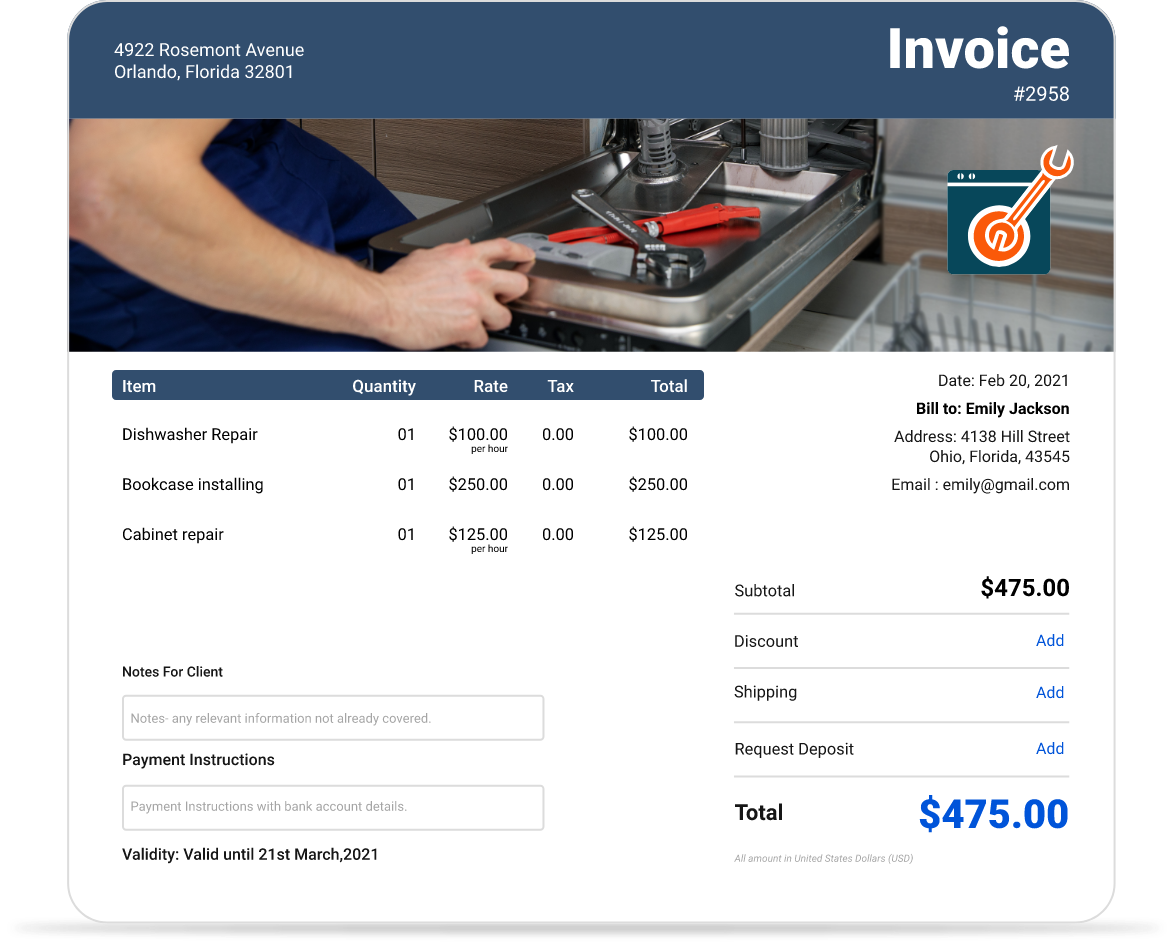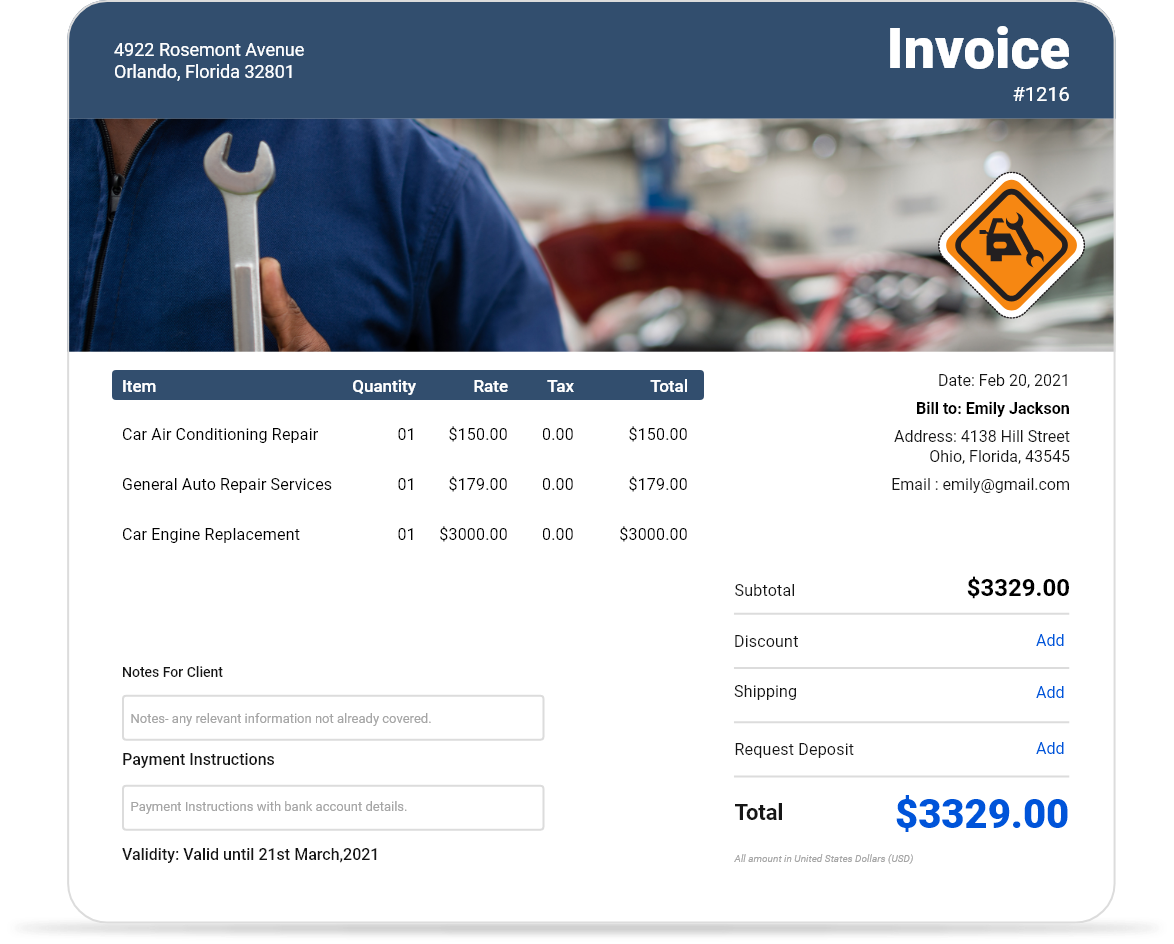
Key Takeaways
- 01Handymen handle small-scale residential repair and maintenance projects without requiring special certification
- 02Contractors are licensed professionals with specialized skills who can perform larger commercial or residential projects
- 03Key differences include licensing requirements, project size and cost limits, and level of expertise
- 04Most states cap handyman projects at $500-$2,500, while contractors can handle larger consignments
- 05Both roles offer excellent opportunities, but contractors have higher demand due to specialized expertise
The home repair and maintenance business is scaling. Americans are spending millions on ensuring that their homes remain in good condition.
But when it comes to handling different tasks, people might get confused between hiring a handyman or a contractor.
Being a small-scale business owner, you should know the difference between the roles and responsibilities of these job positions to help your clients choose the right option.
The knowledge about these technical positions in the home care service business can also help you hire the right talent for the right positions.
So without further ado, let's understand the handyman vs contractor difference.
What is Handyman?

A handyman is a professional who handles small-scale residential repair and maintenance projects. Becoming a handyman doesn't require special certification or qualification.
Taking up a course from a vocational college or a certification from a program can help you learn to be a handyman and gain the theoretical ins and outs of managing the job with finesse.
The individual needs to have a decent experience and some form of instruction from experts in the industry.
The handyman acquires the skills by working on different repair and maintenance projects in their homes or as an assistant to a professional handyman managing different complex tasks.
You can run a successful handyman business by hiring new handyman professionals who know of completing the handyman jobs professionally. Besides, you must also know how to use handyman business invoicing software so that you can automate most not-so-important tasks and focus on attention-worthy tasks.
Roles and Responsibilities of Handyman
The roles and responsibilities of a handyman range from handling different repair and maintenance tasks that need to be performed faster.
The amount of work and responsibilities that a handyman handles without a contractor's license depends upon the size or dollar value of the project requirements.
The type of handyman task also sets the responsibilities of managing the work. Different states have different rules and licensing requirements for handyman services.
In Florida, a handyman doesn't require a licensed specialist to handle most of the work. Unlike a licensed contractor, a handyman doesn't focus on acquiring expensive, large projects associated with re-structuring a home.
For example, a handyman could only replace a shower head, but a plumbing contractor can take the consignment of installing a new tub. And the general contractor oversees an entire bathroom renovation.
What is a Contractor?

A contractor is a licensed professional with specialized skills who can perform tasks in a commercial or residential setting. The role of a contractor is not limited to performing small and quick home repair and maintenance tasks.
The contractors are focused on delivering excellent installation and technical results like electrical work, major plumbing work, and other bigger projects for the clients.
There are over 36,310 general contractors in the United States, and the number is gradually increasing.
Roles and Responsibilities of Contractor
Specialized Trade Roles
Contractors work in specific trades including roofer, mason or bricklayer, gasfitter, plumber, carpenter, electrician, and HVAC technician. Each role requires specialized knowledge and licensing.
Project Management
The contractor reports to the general contractor during the management of large projects and renovations that require higher supervision. General contractors oversee the budget, work, deadlines, and material procurement and delegate the work to different contractors.
Licensing and Certification
A contractor can acquire the general contractor's license by showing experience in the industry and passing specialized exams. The general contractor's license can help them handle large projects and deliver an excellent customer experience.
Regarding the responsibilities of licensed contractors, different states have different requirements that need to be checked and completed:
- Get liability insurance
- Complete licensing requirements (completing an apprenticeship for becoming a licensed electrician)
- Provide company name and other business registration information
The contractors can contact the state's department of labor or the local contractors' board to understand the specifics of the area. Once the professional acquires the specialized license, they stand out from a normal handyman and can complete larger projects like a kitchen remodel.
Difference Between a Handyman & Contractor
Let's understand the handyman vs. general contractor key differences. Along with the difference, you must also know how to prepare a handyman business plan.
Handyman vs Contractor: Key Differences
| Factor | Handyman | Contractor |
|---|---|---|
| Licensing | Minimal or no licensing required in most states | Must acquire specialized license following strict rules and regulations |
| Project Cost Limit | $500-$2,500 cap in most states | No limit - can work on large consignments |
| Expertise Level | Limited knowledge in specialty trades, handles small projects | Specialized expertise in a single trade, handles basic to complex tasks |
| Insurance Requirements | May need proof of insurance in some states | Required to have liability insurance |
| Project Type | Small-scale residential repair and maintenance | Large commercial or residential projects with technical requirements |
1. Permits and Licensing
A few states require handyman to acquire proof of insurance and pass the exam to get a license or the required permit to work as a professional in the industry.
The licensing laws can be simple, and the professional might find it easy to acquire a handyman's license. While other states don't have specific licensing rules for the handyman.
But as a contractor, it's important to acquire the license following a different set of rules and regulations. Without the license, the contractors can't perform repairs and work for different clients.
2. Job and Cost of the Project
Different states don't allow handymen to work over $500 to $2,500. The cap legally limits the handyman to handle different larger projects but has minor work exemption.
But because of intensive and strict licensing requirements, the contractors can work on large consignments.
Hiring a licensed plumber can help you handle certain tasks or specialized work that involves high profits and complex installations that a handyman wouldn't be qualified to manage.
3. Expertise
Handyman has limited knowledge in specialty trades. They can handle small projects with low to medium costs and other odd jobs.
While a specialized contractor has experience in a single trade. They know the technical details of a specific subject and can handle basic to complex tasks related to a small business's niche.
Which One Has More Opportunity?
Both handymen and contractors offer great opportunities for employees and businesses to earn a decent income and scale the horizon of operations.
But because contractors have professional certification and niche-specific expertise, there's a high requirement for skilled contractors in the industry.
Many contractors hire only a specific set of experts and don't focus on adding versatility to their workforce.
We recommend hiring both handymen and contractors to cover multiple jobs at once and scale your business operations.
But once you increase your business scale, you must ensure you can manage your financial business operations to deliver a professional customer experience to your leads and clients.
Integrate a professional software that allows you to create and manage estimates, invoices, purchase orders, and credit memo journal entries.
Use the power of advanced technology to stand out from the rest. Our team has filtered the best software you can use to manage financial document processing.
Ready to Streamline Your Handyman or Contracting Business?
Whether you're a handyman or contractor, InvoiceOwl helps you create professional estimates and invoices in minutes. Focus on your work, not paperwork.
Start Your FREE TrialFrequently Asked Questions
Yes, managing handyman jobs is worth it because it's easy to manage small-scale jobs without having proper certifications. A handyman needs a little experience which they can acquire from working on different repair and maintenance projects.
An expert plumber is skilled in a specific skill set and can handle different complex tasks related to the plumbing industry, but a handyman only has limited knowledge of replacing the taps or repairing bathroom material.
An expert handyman is also called a fixer, handyworker, or handyperson.
Different states don't allow handymen to work on projects over $500 to $2,500. The cap legally limits the handyman to handle larger projects, though minor work exemptions may apply depending on your state's regulations.







